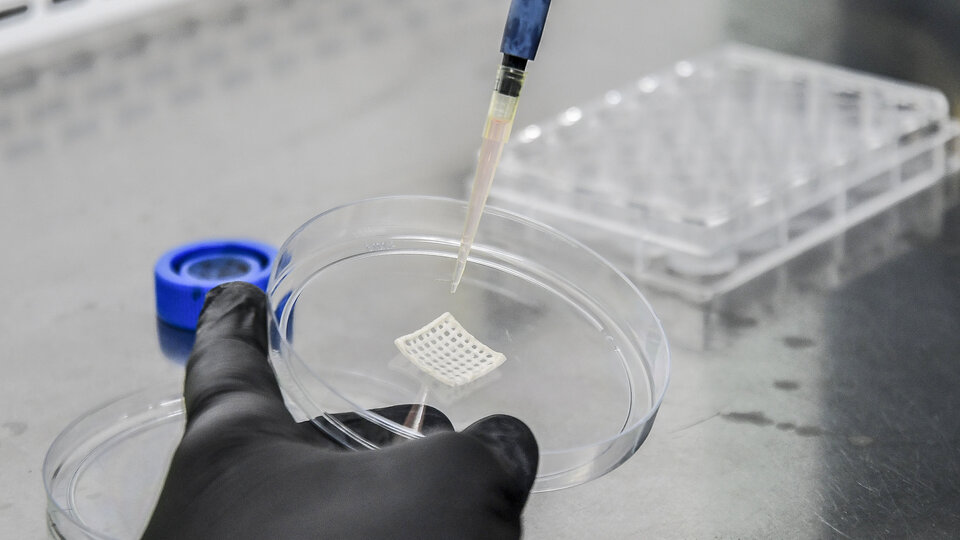The National Science and Technology Program becomes law and constitutes a milestone for the scientific community in Argentina. Regardless of the interests of the governments in power, the delegates gave the missing half approval to the project, which proposed strategic lines for a development model and paved the way for knowledge to finally become a state policy. During the session, opposition legislators – PRO and La Libertad Avanza – tried not to provide a quorum, but a piece of extremism, presented by neuroscientist Facundo Manes, was crucial to the passage of the law. Voted unanimously at six in the morning on Wednesday, the standard prepared by the Ministry of Science, Technology and Innovation was approved and it received consensus and support from various actors.
“HISTORY! At 6 a.m., delegates unanimously signed the Science and Technology Agenda 2030 into law.. For the first time, Argentina will have a widely agreed plan that sets priorities for scientific and technological development over the next decade.“, the Minister celebrated, Daniel Filmus, in their social networks, discussed in more than 50 meetings and for approval of the project given to the Economic and Social Council (CES), UIA, CGT and CTA, among other institutions. It is the result of two years of discussion led by universities, scientific institutes, trade unions and companies.
In conversation with Page 12, Diego HurtadoThe Secretary of Planning and Policies of the MinCyT and one of the main promoters of the initiative points out in the same line of Plimus: “Having a science and technology program is a milestone for many reasons. More importantly, having a plan by law means that whoever rules Argentina must accept it.”. And he continues: “Our country has a medium and long-term agenda again; “Our model aims at productive and disciplined work based on knowledge and argues against another model that aims only at finance and speculation.”
A road map
The approved law outlines strategic lines to strengthen the country in the medium term, with the aim that Argentina can move towards a different growth model. A plan to emphasize knowledge as a driver of added value, leaving behind the historical role of agro-exporter to which the nation had resigned itself since the beginning of the 20th century. An environment of economic and geopolitical submission, for example, to which the candidate of La Libertad Avanza wants to return. Miley despises science, while respecting countries like Israel or the United States, whose states devote a significant percentage of their GDP to its promotion.
The 2030 Agenda aims to promote research, development and innovation agendas in line with national policies and seeks to respond to emerging knowledge demands across countries. It places biotechnology, nanotechnology, nuclear energy, energy transition, data science and software at some of its core axes, and also addresses social issues such as education, security, justice and poverty. In short, scientific knowledge can help solve first-order needs.
Likewise, another aspect worth highlighting is the federal tone of the initiative. “There is a great deal of achievement linked to provincial agendas. Every jurisdiction has been able to use knowledge agendas to coordinate the improvements needed in each territory,” says Hurtado. And he adds: “The program talks about science, technology, work and production, which seems fundamental to me. SMEs, for example, need government support, and they need tools that can transform value.”
No right or left
Plan 2030, promoted by the ruling party, outlines a perspective that differs from opposition positions outlined by candidates contesting general elections in 10 days. On the one hand, Javier Mille announced that if he reached the executive, he would privatize Konizet and reorganize the CyT system because “it cannot continue to function.” On the other hand, the candidate of Together for Change, Patricia Fulrich, does not anticipate what her position will be regarding the production of national knowledge, but she comes with the burden of Mauricio Macri’s predecessor in 2015-2019. It not only demonetized the department but also demoted the ministry to a secretariat.
The plan, promoted by the MinCyT, was approved in the Senate in October 2022 and the opposition (particularly PRO legislators) refused to discuss it in the lower house, arguing that the ruling party had “politicized science”. Just a “biased discussion”. Precisely what is sought by this Act is that the promotion of science and technology does not depend on the political mood of the day. Also, reinforce a main idea in these ways: Promoting science cannot depend on the motives of a left-wing or right-wing government.
However, in recent times, the reality represents an undeniable reality: the Kirchnerist governments promoted the production of domestic knowledge (the ministry was created in 2007, the articulation of the system was encouraged, laws were encouraged to strengthen it, the budget was increased), while the opponents did the opposite. In fact, although Argentina has national S&T plans for 2010 and 2020, it has not for 2030 because the Macri administration is not responsible for their preparation. While an investment for some sciences, it represents a cost for others.
During the government of Alberto Fernández, Argentina allowed four interest rates. The Finance Act, firstly, plans to achieve investment of 1 percent of GDP by 2032, a strategic area that requires not only increased but also permanent investments. Later, the Law of Knowledge Economy And this Biotechnology and Nanotechnology Act, which aims to promote new technologies, create added value, improve quality employment, facilitate the growth of SMEs and increase exports of companies dedicated to knowledge-based services. Now, this new law sets the course for the production of local knowledge in the coming years.
[email protected]

